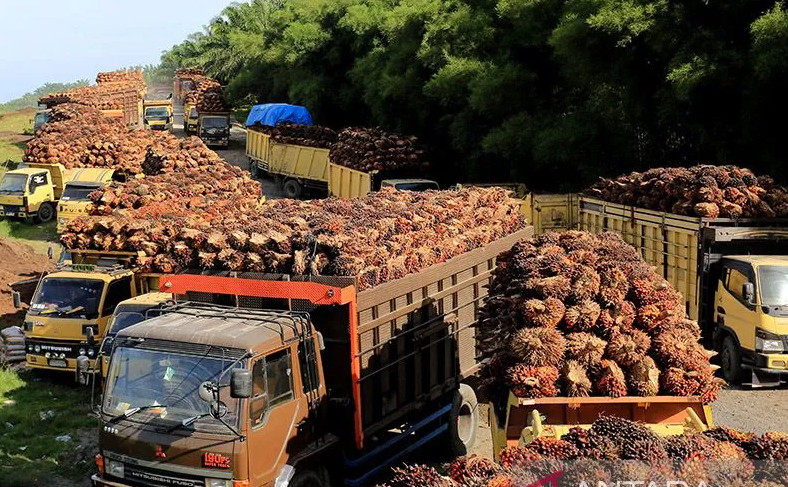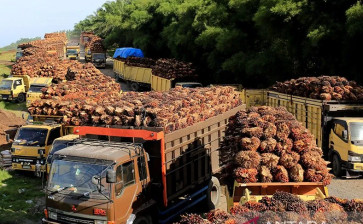Popular Reads
Top Results
Can't find what you're looking for?
View all search resultsPopular Reads
Top Results
Can't find what you're looking for?
View all search resultsOil palm smallholder farmers and EU deforestation regulation
The EU’s refusal to recognize existing sustainability schemes means the duplication of costs and sustainability regulation for palm oil businesses.
Change text size
Gift Premium Articles
to Anyone

The European Union is currently finalizing a new deforestation regulation. The EU claims its objective is to prevent deforestation. In principle, this is a positive agenda, but in practice the current draft of the policy will prevent Indonesian small farmers from selling their products.
Four million Indonesian small farmers face the risk of being cut out of supply chains completely because the EU refuses to take their needs into consideration and refuses to be flexible on the criteria required for its regulation. The specific problem is the EU’s requirement for only fully segregated palm oil, with the EU demanding this be proven for every shipment.
Perhaps in a Brussels conference room, the theory sounds good. It is simply not possible to implement in the real world.
During their talks ahead of the Group of 20 Summit in Bali on Monday, President Joko “Jokowi” Widodo expressed his concerns to European Commission President Ursula von der Leyen about trade discrimination imposed by EU against Indonesian products.
Smallholders in Indonesia operate on approximately two or four hectares of land on average, and produce an average of 1.5 tons per hectare of fresh fruit bunches (FFBs) per month.
Due to the small scale of production, they cannot sell directly to palm oil mills. After harvesting, the smallholders sell their FFBs to dealers who collect from surrounding smallholders on a daily basis. A single dealer collects FFBs from a number of smallholders. The FFBs mix in the truck along the way.
It is logistically impractical to achieve a segregation of FFBs at this smallholder level. The volume is just too small to have separate trucks for every farmer. By excluding any palm oil that is not fully-segregated, the EU is making a conscious choice to deny market access to all 4 million Indonesian palm oil smallholders.



















